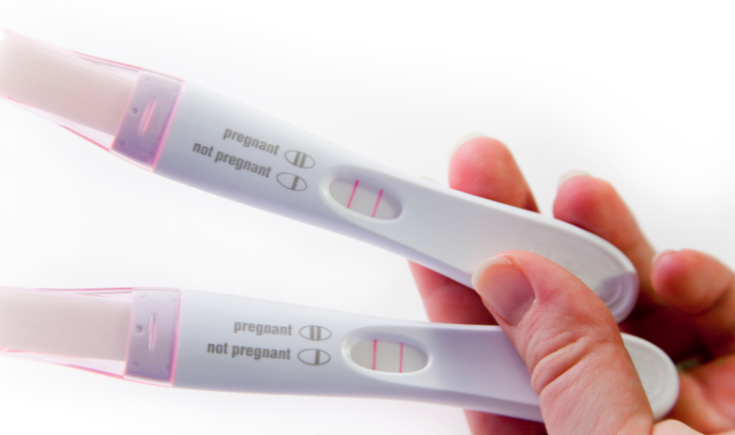

If you think you might be pregnant, there are a number of different pregnancy test options available that can be used at home or in a clinic. Depending on the type of test, they can provide results based on the presence of the hormone human chorionic gonadotropin (hCG) in your urine or blood.
If you’re thinking of using a home pregnancy test, you’ll quickly discover there are several types lining the shelves in your supermarket or pharmacy. Or you might be wondering if you should see your doctor for a blood test instead. To help you decide which option is best for you, let’s take a look at the different pregnancy tests available.
Pregnancy test options
Home pregnancy tests (HPTs)
These are the most commonly used type of test by women or couples trying to conceive. HPTs work by detecting the presence of the hormone human chorionic gonadotropin (hCG), which is produced during pregnancy, in urine samples.
HPTs are usually easy to use and provide results quickly – usually within five minutes. They’re also relatively affordable (around $5.00 for one test) and can be purchased from pharmacies or online stores without prescription.
There are traditional test kits and digital test kits. Both types offer accurate readings if you strictly follow the manufacturer’s instructions, but some digital tests are more accurate than the traditional kits due to their greater sensitivity to hCG.
Tips to improve the accuracy of your results
- Test your urine when you first get out of bed, before you’ve drunk any fluid. Your urine contains higher levels of hCG then than at any other time of the day.
- Wait at least a week after your expected period before testing.
- If your period doesn’t come, but your test result is negative, try re-testing again in a few days.
False negatives can occur in home pregnancy tests, particularly if you didn’t follow the instructions exactly, you tested too soon, or you’re taking certain medications. If you suspect you might be pregnant, trust your instincts and treat yourself as though you’re pregnant until you see your doctor.
Blood pregnancy tests (BPTs)
If you suspect you might be pregnant, but your test is negative, or if you’ve received a positive result from a home pregnancy test, it’s time to make an appointment with your doctor for confirmation.
These tests detect hCG levels more accurately than HPTs do because they measure hCG concentrations directly in blood samples rather than urine samples.
BPTs may also be able to detect very early pregnancies (as early as 11-14 days after ovulation) better than HPTs can since they measure higher concentrations of hCG that indicate early stages of conception more reliably than urine-based testing does.
There are two types of blood pregnancy tests:
- Quantitative: It measures exactly how much hCG is in your blood, which helps determine how far along you are in your pregnancy.
- Qualitative: This checks for the presence of hCG in your blood, so it can confirm a pregnancy but not provide information on how far along you are.
BPTs require lab analysis which typically takes longer – up to 48 hours – before results are available; therefore, they’re not as convenient as home-based testing methods such as HPTs that give much quicker answers about your pregnancy status.
If you go public, BPTs should be covered by Medicare, but if you decide to go through the private healthcare system, there may be a fee. Some insurance plans might cover this expense if medically necessary (e g., when recurrent miscarriages occur).
You’re pregnant – now what?
If you’ve received a positive pregnancy result from a home pregnancy test, please see your doctor. False or incorrect positives are rare.
If you’ve confirmed your pregnancy with your doctor, they will work out your estimated due date, check your overall health and medical history, and discuss with you about making any lifestyle changes to ensure you have a healthy pregnancy.
If the pregnancy is unplanned or unwanted, your doctor will inform and support you to work through your options.























